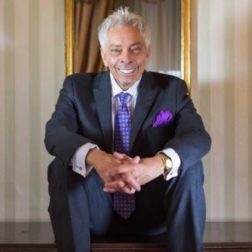
(By Mike McVay) News is fact-based information. News/Talk is opinion about events, policies, and commentary about the news. One is delivered as a part of a news report. The other is presented in-program content. The lines in most listeners minds are blurred. The same could be said for some stations approach to news and news/talk. News and News/Talk, as two different radio formats, are performing oppositely. News has held its own through the pandemic and the aftermath on January 6th. News/Talk has seen erosion in many markets.
The price of gasoline, the state of the economy, a possible recession, gun laws and The United States House Select Committee hearings on the January 6th attack on the Capitol. Those are the topics trending on social media and the hot topics that you’re hearing on Talk Radio and seeing on Cable TV. These topics started as news. The message and debate they created is what we’re hearing on News/Talk radio … often presented in a loud accusatory voice.
The opinions that matter to the audience are the ones that they agree with or that provide a perspective that they’ve not thought about. The news stories that people care the most about are the ones that impact them directly. The average listener is likely more interested in hearing about road construction between work and home than they are about most national stories. They’re talking with friends about the price of gas more so than the January 6th hearings.
The messages and positions taken by national show personalities are frequently echoed by local talent. Which is not the content that local personalities should build a program around. The basis for your show, locally, should be what matters most to the people in your community. That doesn’t mean that you don’t talk about the tragic mass shooting in Uvalde, Texas. It does mean that you bring the story home and connect it to your community.
If local personalities aren’t going to do more than echo national talent on topics, then why not simply carry network programs 24/7? That’s not a recommendation, although I do consult several national programs that perform quite well. I’m exaggerating a point to acknowledge that the best news/talk stations understand that their content should be locally focused whenever possible. They have a nice balance of local and national programming. The national shows focus on the bigger picture. The local shows focus on what matters to the people of the community … which is sometimes aligned with the national story.
News/Talk as a format saw a huge decline not long after the 2020 election. There was a “rating pop” around January 6th, but the format has struggled to return to where it was following that. I’m of the opinion that there are three things causing the format to struggle. One is significant burnout by the audience. We’re all tired of people yelling at each other. It happens all the time. It becomes loud and annoying. Some talents have become caricatures of themselves. It’s too easy to turn it off and silence the noise.
Two would be that there isn’t enough variety in content. The same story, over and over, becomes boring. If there’s nothing new, then one can turn off the station, and miss nothing when they turn it on several days later. News happens every day. Something is new every day. Why shouldn’t the perspective or the message be fresh daily? Even if it is an update on a story that is mature, different angles keep the audience engaged. That works for both national and local commentators.
Three is competition. Podcasting is a source of content that is a definite competitor to News/Talk radio. Some listeners went to podcasting and some to streaming aps. Those two options are where they can find an opinion that matches theirs. It’s like standing in Baskin Robbins and picking your favorite flavor of talk from the 31 flavors on the board. Many like living in an echo chamber. It’s limiting, but it has proven successful for some podcasters and many on-air talents.
People want to hear news so that they know what’s going on. They want to hear opinions that match theirs. Two different things. We’re in a world where News is what I get on my phone and opinion is what I get where my favorite personality can be found. The personality that echoes the opinion of the largest audience has the best chance to attract the biggest group of listeners. The talent who connects to their local community most directly likely have the greatest potential appeal to potential listeners.
The bottom-line; Focus on what really matters to your target listener. Understand that what matters to them is what impacts their lives. Know the difference between news and commentary. Don’t present opinion as if it is news. Stop echoing national commentators … unless it matters to your community … at which time you localize the context of the story. Deliver content with various perspectives to keep it fresh. Stop yelling. For the sake of the format, please, stop yelling.
Mike McVay is President of McVay Media and can be reached at [email protected]








